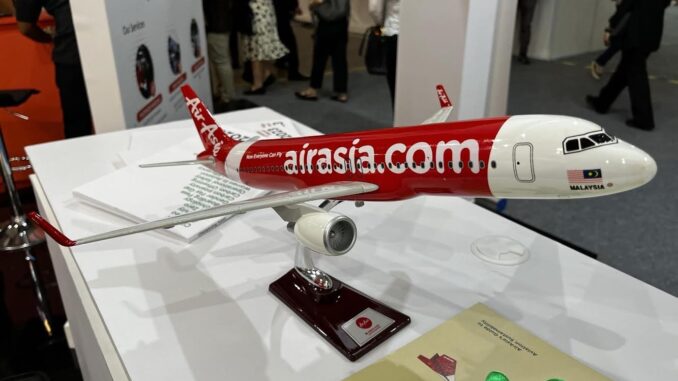
AirAsia and aircraft manufacturer Airbus signed into a new partnership aimed at advancing research into aviation sustainability initiatives for lower carbon emissions in the ASEAN region.
Through a Memorandum of Understanding, both parties will explore the decentralized production of Sustainable Aviation Fuel (SAF) using alternative feedstock and technologies in Southeast Asia.
It also sets forth conditions to jointly investigate advanced measures in improving air traffic management (ATM) to reduce CO2 emissions, leveraging AirAsia’s fuel efficiency program and the expertise of Airbus as a leader in aeronautics, space, and related services.
Yap Mun Ching, AirAsia’s Chief Sustainability Officer, stated that AirAsia will be a key partner of Airbus in ASEAN to test the feasibility of SAF output developed using alternative feedstock and technologies, as well as ground-breaking ATM initiatives supported by Airbus’ innovation teams.
“The partnership establishes a foundation upon which to build joint projects at multiple levels that address the broad needs of improving the environmental performance of the sector,” said Yap Mun Ching.
AirAsia is expected to achieve net zero by 2050 by upgrading its fleet to the most fuel-efficient models.
The airline currently holds an order for 381 units of the A321 model and 15 units of the A330 model of aircraft to meet the airline group’s fleet growth and replacement needs.
“Airbus is contributing to the decarbonization of aviation around the world. That means working with our customers in every region, looking at all solutions available today and collaborating on research for future technologies,” said Airbus Chief Sustainability Officer Julie Kitcher.
By 2035, aircraft upgrades are expected to account for up to a 10% reduction in AirAsia’s CO2 emissions compared to its 2019 baseline.
Operational efficiencies and SAF are expected to deliver another 15% reduction as the airline group charts its pathway towards net zero by 2050.
The signing ceremony took place during the Bali International Airshow, where industry leaders and stakeholders gathered to discuss advancements in aviation technology and sustainability.


Be the first to comment